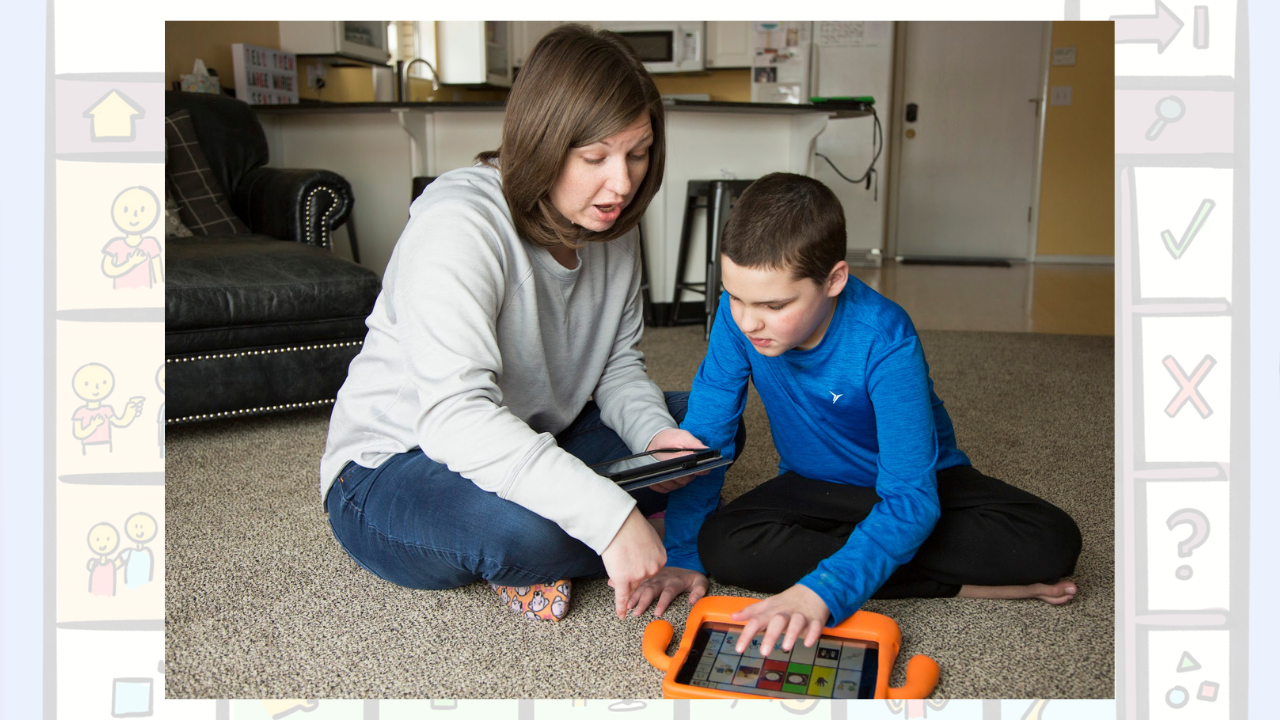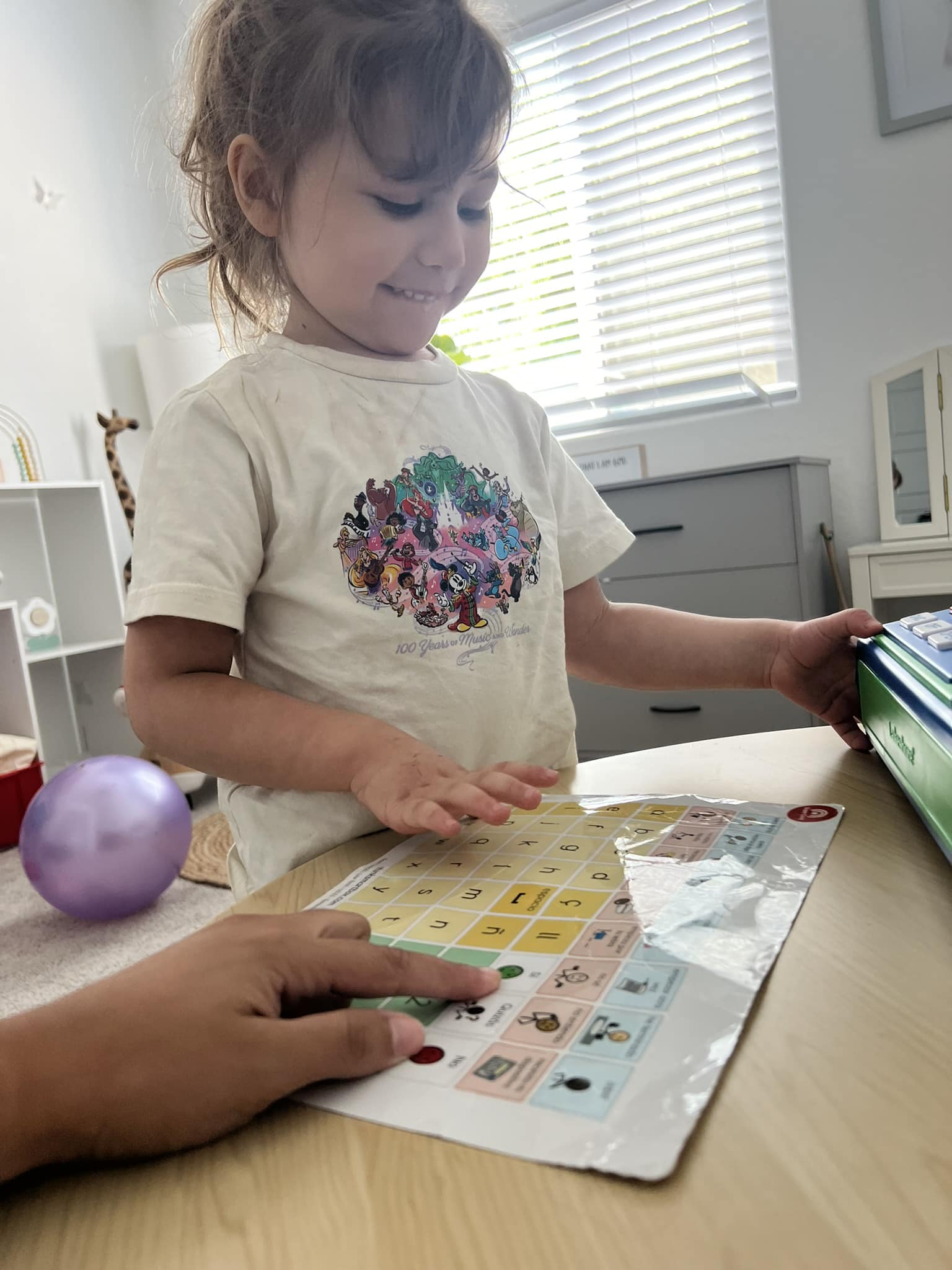AAC at Home: Small Daily Habits That Add Up
Sep 28, 2025
Sometimes it’s the little things we do every day that shape the biggest changes in our student's communication.
For families using AAC (Augmentative & Alternative Communication), it can feel overwhelming at first. There’s so much to learn, so many buttons, and the pressure to “do it right.” But here’s the truth: AAC doesn’t have to be a separate lesson or a big production. The most powerful progress often comes from small, repeatable habits that fit naturally into your daily life.
Communication is a skill that grows with use, and our children thrive when their AAC system becomes part of their everyday world. Just like we wouldn’t expect a child to learn to read by sitting down once a week, we can’t expect AAC skills to develop if the device is only used in therapy or structured schoolwork. It’s the consistent exposure, the little moments sprinkled throughout the day, that add up to big gains in confidence, independence, and connection.
Here are five simple habits you can try at home.
1. Model core words during routines.
Think about the words you use every single morning: “in,” “on,” “go,” “done.” These are perfect opportunities to model with AAC. When your child puts on shoes, you can tap on. When breakfast is finished, tap done. These everyday routines are built-in chances to model the same words over and over, which helps cement them in your student’s memory.
2. Offer two choices with AAC.
Choices are one of the simplest and most motivating ways to use AAC. At snack time, show “apple” or “cracker” and let your child select. The same works for toys, books, or even which activity to do first. Every time you offer choices, you’re reminding your child that their voice matters.
3. Narrate what you see.
When you’re cooking dinner, driving in the car, or watching birds outside, model simple words that describe the world around you. Words like “big,” “stop,” “cold,” or “open” are meaningful in many settings. You don’t need to make it a lesson. Just let your child see how AAC can be used in real life.
4. Use AAC in play.
Play is one of the best teaching tools we have. While stacking blocks, model more. While building with Lego, try help or turn. During pretend play, add words like fun, go, or stop. Because play is joyful, students are often more open to exploring AAC during these moments.
5. Celebrate every use.
Whether your child presses a single button or strings together several words, treat it as communication. Celebrate their effort, respond naturally, and let them know you understood. Every attempt builds trust and reinforces that AAC is their voice.
Parents sometimes feel pressure to model perfectly or cover every single word. Please release yourself from that expectation. Your child doesn’t need perfection. They need consistency, patience, and love. Even if you only model one or two words a day, those small actions add up over time. Communication growth is a journey, not a race, and every step forward—no matter how small—is worth celebrating.
We believe that AAC belongs in everyday life. That’s why our AAC program includes built-in supports and guidance to help parents weave communication into daily learning. If you’re ready to make AAC a natural, stress-free part of your homeschool, you don’t have to figure it out alone—we’re here to help.
Want to know if your AAC software works well with our program? Check out our post, "Our AAC Course Compatibility" to find out.
Main photo: CC-By Scot Wahlquist // Additional photo: CC-By Shell Bell

Jennifer Bullock, Contributing Author
Homeschooling-experienced mom to a tween, non-speaking daughter, Jennifer is also Marketing Outreach Coordinator for The Autism Oasis. With 20+ years experience in marketing, advertising, and social media communications, you will see her occasionally supporting the blog and social media channels with various content related to Autism Oasis.
Nonverbal Autism Homeschool enrollment is currently open!
Stay connected with news and updates!
Join our mailing list to stay updated on Nonverbal Autism Homeschool courses, special events and new blog posts. You'll also receive free curriculum, inspirational messages, autism parenting hacks and more!
We hate SPAM. We will never sell your information, for any reason.


